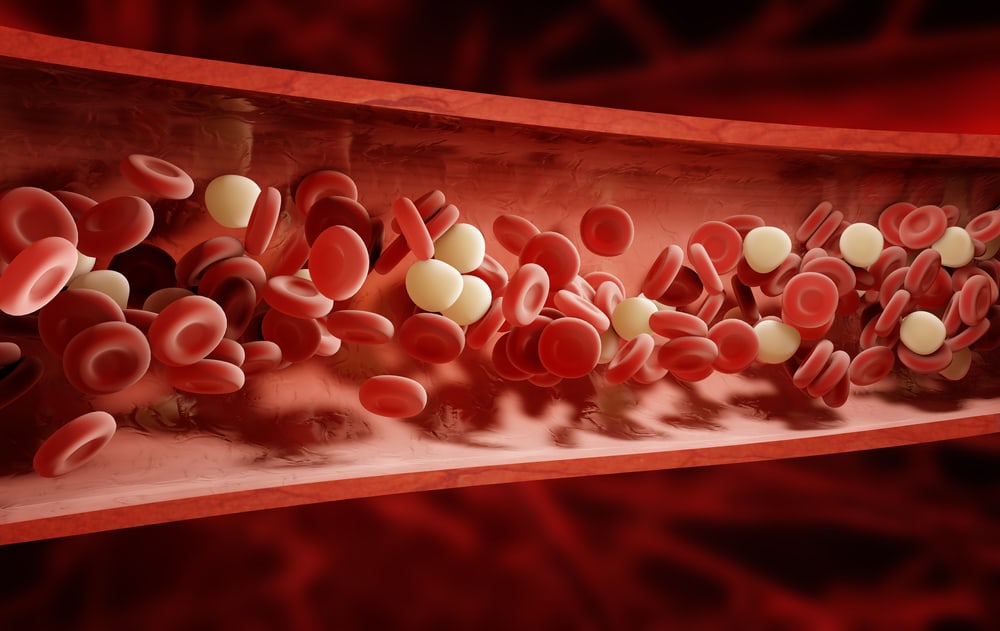Contents:
- Medical Video: Blood Thinners - What You Need To Know
- What is thrombocytopenia?
- What causes low blood platelets?
- What are the signs and symptoms of thrombocytopenia?
- Who is at risk of developing thrombicopenia?
- How is the treatment of thrombocytopenia?
- Is there a way to prevent thrombocytopenia?
- Dilute blood can also indicate you have hemophilia
Medical Video: Blood Thinners - What You Need To Know
How thick or liquid blood in your body has an effect on your health. Having blood that is too thick, for example, has a greater chance of experiencing coronary heart disease, stroke, and other heart diseases. Then, what about runny blood? What causes blood to runny, and what are the risks to health?
Dilute blood can occur due to several conditions, namely due to thrombocytopenia, hemophilia, or also vitamin K deficiency. In these conditions there is a disruption of blood clotting or a decrease in haemostasis function. The blood of the sufferer is not effective in clotting, so bleeding or bleeding becomes a common thing.
What is thrombocytopenia?
Thrombocytopenia is a runny blood condition that occurs due to a lack of platelets or platelets, blood cells that play an important role in the blood clotting process.
In the bloodstream there are various types of cells that flow. Each cell type has an important role each. Red blood cells help deliver oxygen throughout the body. White blood cells help the body's immune system fight infection. Platelets help blood clots.
Normal platelet counts are 150,000-450000 platelets per microliter of blood. If less than 150,000 pieces of blood per microliter are considered as runny blood.Low platelet levels in the blood can cause health problems.
In rare cases, the platelet count can be so low that it causes fatal internal bleeding. This complication especially occurs if the platelet count drops below 10,000 platelets per microliter. Bleeding can occur in the brain and digestive tract.
What causes low blood platelets?
Dilute blood itself is basically not a disease, but a condition that may be a result of certain health problems, for example:
- Disorders of the spinal cord, so it doesn't produce enough platelets.
- Nutritional deficiency, especially iron deficiency, folic acid, vitamin K, or vitamin B-12.
- Infection. There are several common infections that result in low platelet counts, namely HIV, hepatitis C, goiter, and rubella virus (German measles).
- Pregnancy. Approximately 7-12% of pregnant women experience thrombocytopenia when they approach their child's birth day. The cause is still unknown.
- Cancer. Blood cancer (leukemia) or lymphoma cancer can damage the spinal cord and damage the body's stem cells. Even cancer treatment will also damage stem cells. When stem cells are damaged, they don't grow as healthy blood cells.
- Autoimmune disease, as Immune Thrombocytopenia (ITP), lupus, and rheumatoid arthritis.
- Genetic Condition. There are several genetic conditions that cause low platelet counts in the body, such as Wiskott-Aldrich syndrome and May-Hegglin syndrome.
- Spleen stores too much platelets. A third of the body's platelets are stored in the spleen. If the spleen enlarges, most platelets can accumulate in the spleen so that the number of platelets circulating in the blood is not adequate. Enlarged spleen is often caused by cancer, cirrhosis, and myelofibrosis.
Dilute blood can also appear as a side effect of certain drugs, such as heparin, quinine, sulfa-containing antibiotics, and some anticonvulsant drugs such as dilantin, vancomycin, rifampicin.
What are the signs and symptoms of thrombocytopenia?
Symptoms of thrombocytopenia depend on your platelet count. Some symptoms that might occur include:
- Bruises
- Nosebleeds or bleeding gums
- Bleeding that never stops, even though the wound is long
- Heavy menstrual bleeding
- Bleeding from the rectum (anus)
- There is blood in the stool or urine
- Fatigue
In more serious cases, you can experience internal bleeding. Symptoms of internal bleeding are:
- There is blood in the urine (for example urine is blood red or blackish brown like cola)
- Bloody stool (for example blood red stools or black asphalt)
- Blood vomiting or dark color
Who is at risk of developing thrombicopenia?
Dilute blood can be owned by children and adults of any age. However, the group of people below has a higher risk of developing thrombocytopenia.
- People who have cancer, aplastic anemia, or autoimmune diseases
- People who are exposed to certain chemical poisons
- Have a reaction to a treatment
- Have a certain virus
- Genetic conditions that have problems with thrombocytopenia
- Alcohol drinkers
- Pregnant women
How is the treatment of thrombocytopenia?
The main goal of treatment is to prevent death and disability caused by bleeding. In cases of severe thrombocytopenia, the doctor may prescribe treatments such as corticosteroid drugs (for example, prednisone), blood transfusions or platelets, or splenectomy.
Splenectomy is the surgical removal of the spleen, which is a second-line treatment if therapy with drugs is not working effectively. This operation is mostly carried out in adults who have immune thrombocytopenia (ITP).
Meanwhile, cases of runny blood caused by hemophilia cannot be completely cured - symptoms can only be controlled by hormone therapy or blood plasma transfusions. Physical therapy may also be needed as a form of joint damage due to hemophilia.
Is there a way to prevent thrombocytopenia?
Thrombocytopenia due to hemophilia cannot be prevented, because hemophilia is a genetic condition inherited from parents. But for cases of runny blood caused by other risk factors, you can take precautions as follows:
- Avoid drinking alcoholic beverages which slow down platelet production
- Avoid contact with toxic chemicals such as pesticides, arsenic, and benzene which can inhibit platelet production.
- Avoid drugs that can affect your platelet count. Talk to your doctor for the possibility of changing the type of medication or reducing the dose, if your condition requires the drug.
- Vaccinate to prevent viral infections, especially vaccines for mumps, measles, rubella, or chicken pox (MR vaccine and Mumps vaccine).
Dilute blood can also indicate you have hemophilia
Hemophilia is a rare genetic disorder that causes blood to clot, due to a lack of proteins that play a role in blood clotting. According to the World Federation of Hemophilia (WFH), about 1 in 10,000 people are born with hemophilia.
Hemophila causes you to bleed easily because blood takes longer to clot. People with hemophilia can also experience painful joint swelling due to bleeding that seeps into the joints. Hemophilia complications can be life-threatening if not treated properly, including cerebral hemorrhage.












